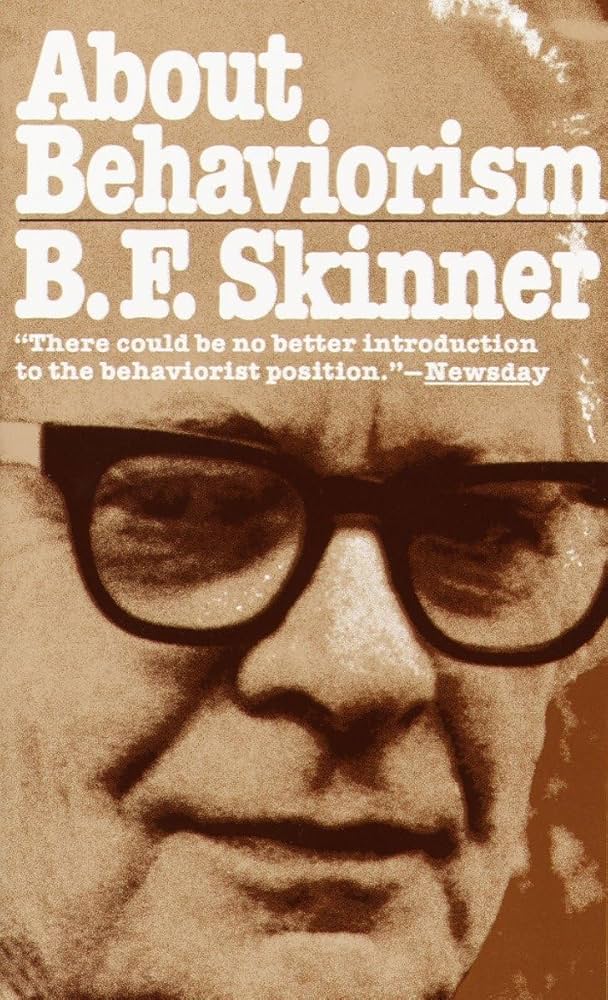

About Behaviorism
BF Skinner
“About Behaviorism” presents a summary of what constitutes the field of behaviorism. The book focuses on answering several questions posited from the opening line of the introduction - “Behaviorism is not the science of behavior; it is the philosophy of that science." Skinner outlines key areas of focus for behaviorism, with each chapter providing the behaviorist perspective on a key subject. This ranges from discussions about operant and verbal behavior, to what constitutes the “self” and whether humans possess “control” of their actions. The layout is guided by a handful of misconceptions about behaviorism presented in the introduction, which are addressed throughout the book.
Starting in graduate school, I was exposed to several ideas which were first posited by Skinner. Despite this, my graduate school education barely touched on his work, with the only thing taught to me being a cursory overview of operant conditioning. Thus, I took it upon myself to read some of his more popular books to discern what Skinner believed and how his theories influenced modern behavioral psychology. For this reason, the first book I chose to read was, “About Behaviorism.”
Skinner bluntly lays out what constitutes radical behaviorism as a philosophy: An organism behaves in accordance with its interaction with the environment, where this interaction effects the probability of behavior emission; A behavior can be publicly observed as a public event or privately experienced as a private event; All behavior has a materially observable basis and any metaphysical explanation for an organism’s actions is wrong. These are fundamental tenets of radical behaviorism. From this, Skinner reconceptualizes several focuses in psychology to discuss them from the radical behaviorist perspective. For instance, attention is not a “mental life invention” stored within a structure of the brain, but rather a result of the contingencies underlying the process of stimulus discrimination within the environment (Ch. 7). A person’s sense of self comes from the reality that we are, “A locus where genetic and environmental conditions come together in a joint effect (Ch. 11).” At multiple points within the book Skinner stabs at the cognitive psychology notion that information is stored within the brain to be recalled at later points, which is a peculiar reoccurring opinion I can only imagine came about from the rise of computers as a metaphor for understanding cognition. Skinner states, “it is not the behaviorist… but the cognitive psychologist, with his computer-model of the mind, who represents man as a machine (Ch. 7).”
Another reoccurring theme is for Skinner to fall back on biology and biological terminology whenever a concept fails to be thoroughly explained by behaviorism. For example, creativity is a “mutation,” an accidental variation in behavior which is reinforced by its consequences (Ch.6, Ch.7). Skinner himself stated that his work in behaviorism was an extension of Darwin’s theory and that he would be remembered in the same way scientists remember Darwin for evolutionary theory (See Science and Human Behavior). After reading Skinner’s bibliography, I would recommend this book above any of Skinner’s other works. While there is still confusing terminology (Despite Chomsky’s request, Skinner never did define what he meant by “probability”), ultimately “About Behaviorism” does the best job at defining the behaviorist position from Skinner’s perspective.